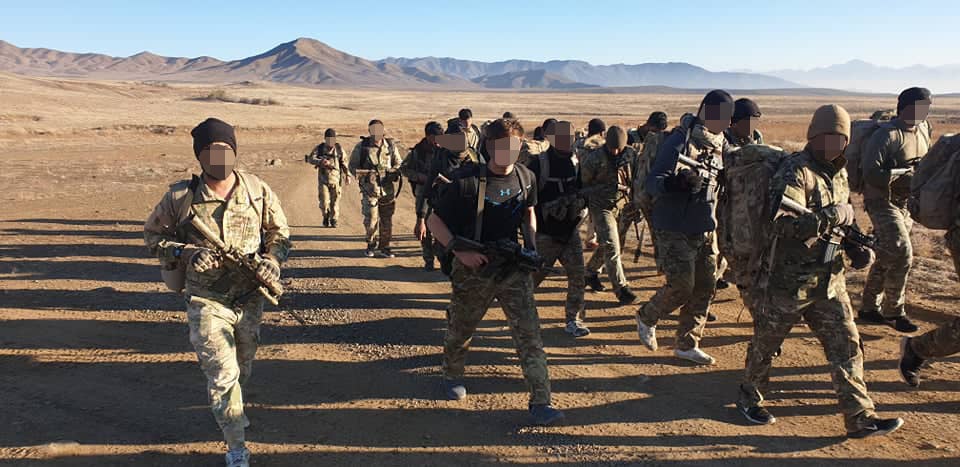An honourable end in sight for the Afghan special forces let down by Britain
Editorial: After months of inertia and confusion, the British authorities appear to be within touching distance of allowing the Afghan ‘Triples’ who fought alongside allied military forces to start new lives in the UK. As a grateful country, it is the least we owe them

At last, it would seem that justice is at hand for the Afghan special forces so disgracefully left behind and forgotten by the British government.
Despite lavish promises by successive prime ministers and defence secretaries, hundreds of Afghan soldiers in the special forces have had their cases for asylum wrongly assessed, with the result that they and their families were left abandoned when the British hurriedly withdrew in August 2021. There was apparently no consideration given to certificates and ID cards showing their closeness with the UK special forces, and references from British colleagues were ignored. So were the testimonies and pleas of senior British service personnel.
Now, in a dramatic but fairly typical development, so far as the Afghan veterans are concerned, after months of inertia and confusion, the British authorities have at last come within touching distance of doing the right thing, and allowing people who have risked their lives fighting alongside allied forces to start a new life in safety.
After intense activity on the Afghans’ behalf by The Independent, Lighthouse Reports and Sky News, the Ministry of Defence has relented and agreed to review the soldier’s applications to the Afghan relocations and assistance policy scheme. Crucially, the ministry has conceded that they were paid by the British. Thus, the Afghan special forces soldiers, who were members of Commando Force 333 and Afghan Territorial Force 444, and trained by Britain’s own world-class special forces, will be allowed to bring their family members with them to the UK, meaning thousands of people will probably be given sanctuary.
It is a small number in the context of annual – regular, and legal – migration of more than half a million a year; but there was, and is, a matter of principle at stake. Does Britain stand behind and with its allies or not?
It is an especially poignant question to ask in this case, because of how Britain’s long and difficult engagement with Afghanistan began, and how it ended.
Almost forgotten now, this particular theatre in the “war on terror” was unlike the illegal campaign in Iraq. It followed 9/11, was clearly endorsed by the United Nations as a matter of international law, encompassed a wide alliance of nations, including from the Muslim world, and sought to end the Taliban’s cruel regime and sponsorship of Osama bin Laden and al-Qaeda. It was an exercise in nation building, however it ended.
To conduct the war against the Taliban, many Afghans volunteered to work directly and indirectly for the Allies. Had George W Bush and other leaders made different choices in 2001, then no Afghans or members of the Triples, so-called because of their full titles, would be applying for asylum now, or at least in these numbers. They are coming to Britain not out of some long-held ambition, but because we were in their homeland and now they have to save their lives – lives in danger because of their service to the allies.
That debt needs to be honoured, and the fear banished. Their case for asylum is a classic one – they are in genuine fear for their very lives. Their claims are unimpeachable, whatever scheme or basis they are submitted under. Now the government has finally accepted that these people need to come here, they need to make sure they are moved quickly as their lives are in danger.
There is evidence that Britain and its European partners briefly contemplated staying on in Afghanistan when President Joe Biden made the announcement about withdrawal, which had been agreed with the Taliban by President Donald Trump. Without the United States, though, there was little chance of success, and so the British withdrew in a less than orderly and ideal fashion. That is when those who fought with us were abandoned.
Perhaps that was inevitable in the circumstances, because there were so many trying to escape, and so little time for decision-making. That, though, should never have been the end of that story. It needed an honourable conclusion. Now that is within reach.



Join our commenting forum
Join thought-provoking conversations, follow other Independent readers and see their replies
Comments